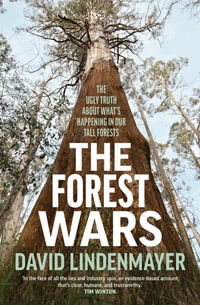The uplands are a crucial source of ecosystem services, such as water provision, carbon retention, maintenance of biodiversity, provision of recreation value and cultural heritage. This puts them in the focus of both environmental and social scientists as well as practitioners and land managers.. This volume brings together a wealth of knowledge of the British uplands from diverse but interrelated fields of study, clearly demonstrating their importance in 21st Century Britain, and indicating how we may through interdisciplinary approaches meet the challenges provided by past and future drivers of environmental change.
The upland environments are subject to change. They face imminent threats as well as opportunities from pressures such as climate change, changes in land management and related changes in fire risk, increases in erosion and water colour, degradation of habitats, altered wildlife and recreational value, as well as significant changes in the economy of these marginal areas. This book presents up-to-date scientific background information, addresses policy related issues and lays out pressing land management questions. A number of world-class experts provide a review of cutting-edge natural
and social science and an assessment of past, current and potential future management strategies, policies and other drivers of change. After appraisal of key concepts and principles, chapters provide specific examples and applications by focussing on UK upland areas and specifically the Peak District National Park as a key example for other highly valuable upland regions.
Industry Reviews
'Looking forward, and building on a rich pedigree of research, this significant interdisciplinary book is the first to tackle the challenges of managing the uplands in our new century. Clean and regular water supplies, renewable energy, carbon rich peatlands, good opportunities for walkers and tourists, sustainable agriculture and forestry, and some of the best protected areas for wildlife in Europe all rely on sound and integrated land management practices. This book provides vital pointers to caring for our uplands with vigour and optimism...and a considerable amount of joined up thinking and working.' Professor Des B.A. Thompson, Policy and Advice Manager, Scottish Natural Heritage Chairman of the UK Joint Nature Conservation Committee's Uplands Lead Co-ordination Network 'This book draws together an impressive array of interdisciplinary studies to show how much we depend on the fragile habitats and landscapes of the uplands and what threats they face. It is essential reading for planners, conservationists and environmentalists and all those concerned with the future of the uplands.' Professor Philip Lowe OBE, Director of the UK Research Councils' Rural Economy and Land Use Programme 'This authoritative volume brings together knowledge and experience from across the spectrum of upland land managers, policy makers, scientists, social scientists and economists, on the forces shaping our upland environment today. Understanding the root causes of change, and the impacts change can have on the environment and for people - will give us the knowledge to help create the future we want. This book takes us a long way in that direction, and is recommended reading for all those wanting to understand more about the critical importance of the uplands to our lives, and the challenges we collectively face in delivering a secure future for these treasured landscapes.' Martyn Howat, Director - Uplands, Natural England 'Uplands are fantastic national assets and provide enormous health and breathing space opportunities to people living in and around them. National Parks can play a leading role to find new ways to value and conserve upland environments. This book show cases important opportunities to manage the drivers of change to these iconic places.' Geoff Nickolds, Chair of the Moors for the Future Partnership and Peak District National Park Authority Member 'The book's success is a consequence of its very wide coverage, highly condensed, brief and readable accounts of its many facets, and the careful editing that has produced a logical sequence and structure that maintains the reader's interest even in unfamiliar areas. It will prove a valuable resource to all those concerned with the future of our uplands.' Peter Moore, Bulletin of the British Ecological Society 'this collection of papers provides a useful overview of the interconnected ecological, economic, and social issues that will have to be considered in debates about the best way to manage the uplands in the future.' Andrew Midgley, Scottish Agricultural College
























